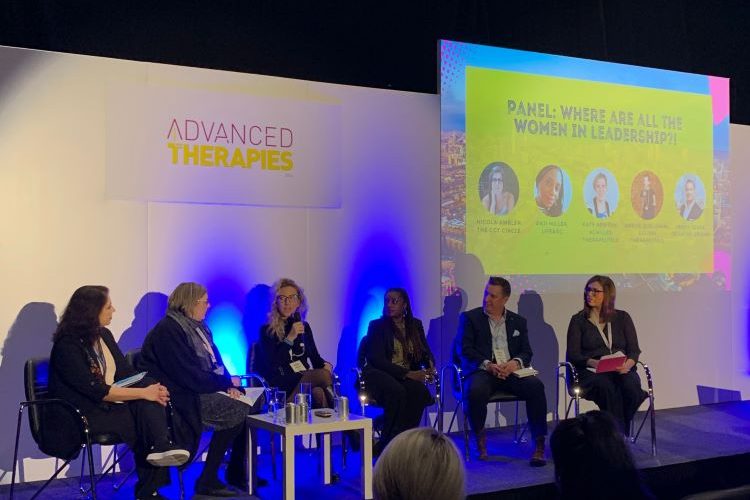Supporting female leaders to advance cell and gene therapies
Posted: 25 April 2024 | Catherine Eckford (European Pharmaceutical Review) | No comments yet
At the 2024 Advanced Therapies conference, panellists discussed the lack of women in leadership positions within the cell and gene therapy space and what could be contributing to this.


Credit: CGT Circle
Four key barriers to female career progression were explored during a panel at the UK 2024 Advanced Therapies conference in March. Hosted by members of the professional women’s networking group CGT Circle, the session explored factors that could be contributing to the current imbalance for women in leadership positions within the cell and gene therapy (CGT) sector.
For example, a survey published by the organisation for this year’s International Women’s Day found that 47 percent of women are paid less than their male counterparts.1
The four key challenge areas1 highlighted in the session were:
- Culture in senior leadership (58 percent)
- Imposter syndrome (54 percent)
- Lack of role models (46 percent)
- Maternity leave.
Amelie Quilichini, Chief Executive Officer and Co-Founder of biotech Kolibri, emphasised that when it comes to women making investments in the cell and gene therapy sector, not only is there a remaining gender gap in the industry, but there are also disparities between two of the major markets in the sector. During an anecdote she shared during the session about how comparatively “so many investors are women”, she also highlighted that Europe is “so far behind” the US.
Why aren’t more women in leadership in CGT?
The moderator put the question of why there is a lack of women in leadership roles to the audience.
Panellist Amy Hines, VP Apheresis Strategy & Sourcing at Cryoport, acknowledged that while it can be “uncomfortable” for women to break out of the social norm and advocate for themselves to do more – eg, be a leader – she urged females working in the sector to get used to this. She suggested that one reason there are not as many women in leadership roles is that, in order to do so, they must support each other as well as themselves.
Recruitment and career progression: gender disparities
The session also covered other gender inequalities within leadership. In recruitment for example, Katy Newton, Senior Vice President, Immunology and Process Development at Achilles Therapeutics, revealed that compared to men, women are more hesitant to apply for roles they do not feel fully qualified for. She noted that women do not tend to put themselves forward for leadership positions unless they are “100 percent confident of success”.
Another contributing factor, as raised at the beginning of the session, was the impact of maternity leave for women working to attain leadership roles. She underlined how, for instance, women who have been on maternity leave for nine months can miss a couple of promotion cycles, causing them to be behind “by three years” in terms of progressing up the career ladder. She stated that in these cases, the reason is not a lack of capability on the part of women, but rather being placed at a disadvantage by being ‘out of sight, out of mind’.
The importance of mentorship and soft skills
While women are “spread thinly” in the cell and gene sector, she shared that there is still a “great network” of professionals in this demographic”
Newton added that as women tend to have a more nurturing side, soft skills “need a rebrand: they are critical for any [professional] environment”. They should not be devalued because “the best companies have people using [these skills] every single day”.
Speaking separately to EPR, Newton commented on the importance of women having others to share their ideas and thoughts with. While women are “spread thinly” in the cell and gene sector, she shared that there is still a “great network” of professionals in this demographic.
women are just as capable as men; they just need to believe in themselves”
Newton asserted that there are a lot of women in the junior ranks and that industry needs to change how quickly they can move up. One key solution is networking: “Learn from the people surrounding you, learn from the people who have been before,” she recommended. Newton argued that these individuals can support women by giving them confidence to put themselves forward for leadership roles. She concluded that women are just as capable as men; they just need to believe in themselves.
Bringing women into leadership positions: flexibility is key
Jason Jones, Global Business Development Lead at Cellular Origins, offered his perspective, sharing that management and leadership must have a more flexible approach to hiring, and not prioritise just those who ‘should’ be put forward for the role. However, he reflected that in terms of bringing women into leadership and back into a career [eg, after maternity leave], there is “still a long way to go”.
Referencing the topic of imposter syndrome, Quilichini stated that it “needs a rebrand”, with greater focus placed on building confidence within the industry. Jones summarised how a lack of confidence can be compounded in the cell and gene therapy sector, given it is such a changing industry: “often you are out of your comfort zone”.
It is clear that there is great potential for women to advance in the cell and gene therapy field, yet support from senior allies as well as the wider community is needed to realise this.
References
- CGT Circle survey reveals why International Women’s Day matters. [Internet] BioProcess International. 2024. [cited 2024Apr]. Available from: https://www.bioprocessintl.com/global-markets/cgt-circle-survey-reveals-why-international-women-s-day-matters
Related topics
Biopharmaceuticals, Gene therapy, Industry Insight, Therapeutics
Related organisations
Achilles Therapeutics, Cellular Origins, CGT circle, Cryoport, Kolibri









